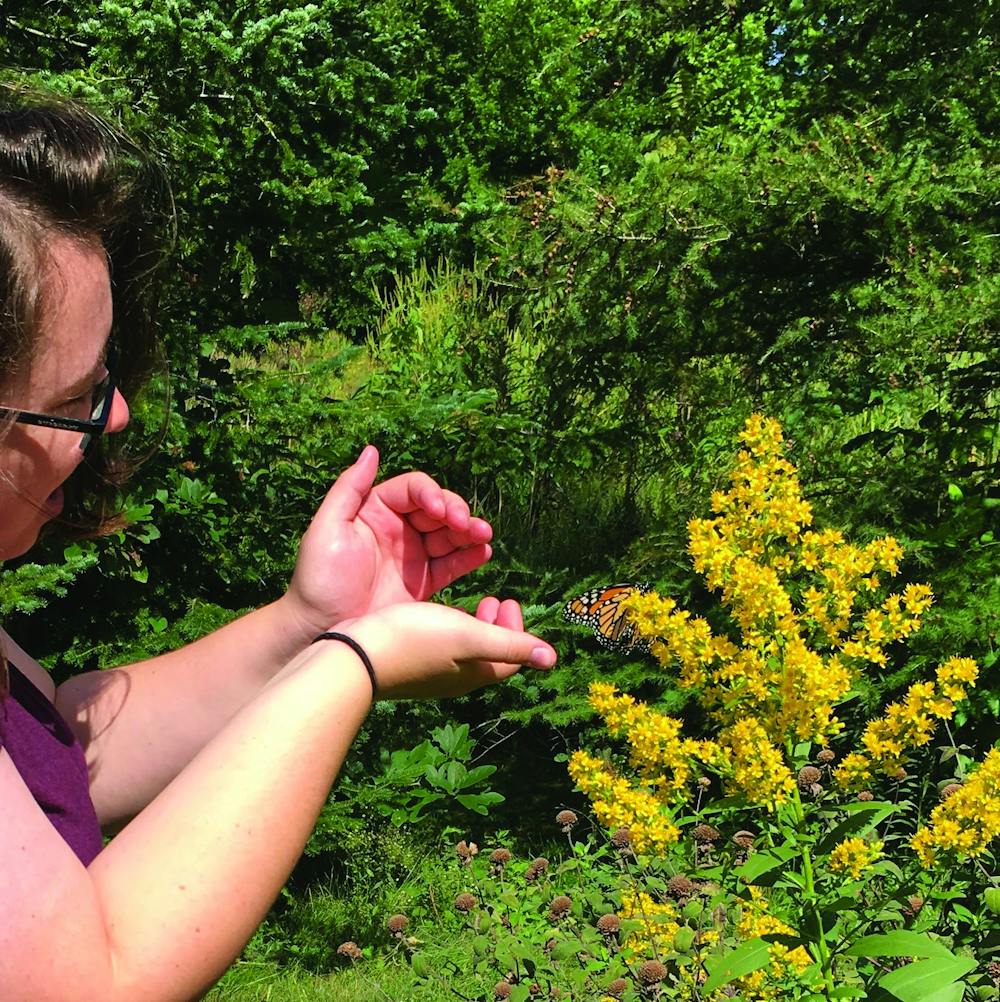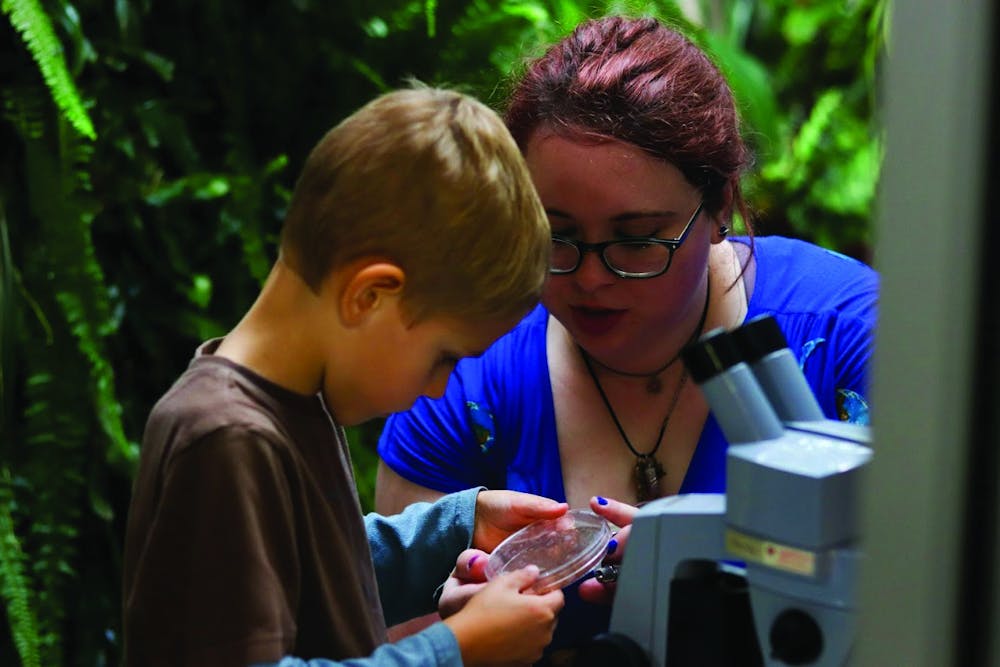When she was in high school, Erica Forstater said, she participated in the Student Conservation Association (SCA), a non-profit group whose members protect and restore land throughout the U.S.
Forstater said during her time with SCA, she cleaned a national wetland near her hometown in Philadelphia where hundreds of members planted trees.
“The craziest thing we pulled out of the wetlands was a refrigerator,” Forstater said.
She carried the passion she fostered then to her work now as the environmental education program coordinator at the Richard Orchid Greenhouse, where she partners with Ball State’s Field Station and Environmental Education Center (FSEEC) to educate the Muncie community on environmental issues, such as managing invasive species, reducing pollution and increasing recycling and land management.
“I think the Field Station’s efforts in raising environmental awareness are important because we, along with other environmental organizations, are essentially the link between scientists and the public,” Forstater said. “We use the science to improve how we work with the environment, and we communicate that essential science to the public in ways they can understand and incorporate into their own lives.”

Educating the community about the environment doesn't just take place on Earth Day, Forstater said, but year round. She added Earth Day is important because it continues to spread awareness to the general public about the importance of conservation for our health and future.
“This year marks the 50th anniversary of Earth Day,” Forstater said. “As we reflect on the last 50 years, we can see all of the improvements we have made in protecting the planet, such as the Clean Water and Clean Air Acts, the Endangered Species Act and so much more.
“However, this anniversary can also demonstrate to us how much further we need to go. Environmental regulations have been rolled back in the last several years, and our country has abandoned the Paris Climate Accords. We must continue making improvements to our environment and how we interact with it. We cannot continue this backward slide.”
John Taylor, land manager for the FSEEC, said there are many opinions about climate change to sort through, so he believes, just as people listen to health professionals with the current COVID-19 pandemic, people should turn to knowledgable scientists for more information on climate change.
“If [people] are not listening to the scientists, then [they] don’t really understand what’s going on,” Taylor said.
To continue environmental activism in Muncie, Forstater works with the Red-tail Land Conservancy to run its Wildlife Warriors, a year-long nature club for children ages 10-15. Forstater and the Wildlife Warriors go out several times a year to do environmental volunteer service, such as removing trash from the White River, removing invasive honeysuckle on Red-tail property to improve bats’ habitats and planting trees on Red-tail property.

While restoring and rehabilitating the environment will look different this spring because social distancing due to COVID-19 concerns prevents people from gathering to clean up parks and other natural environments, Taylor said, individuals can still protect the environment by observing seasonal changes and recognizing the value of the environment.
“There’s a lot to celebrate,” Taylor said. “There’s a lot to protect, and we all, [as humans], depend on it.”
Nicole Thomas and Kamryn Tomlinson contributed to this story.
Contact Taylor Smith with questions at tnsmith6@bsu.edu or on Twitter @taynsmithh.
Contact Mary Stempky with questions at mstempky@bsu.edu.





